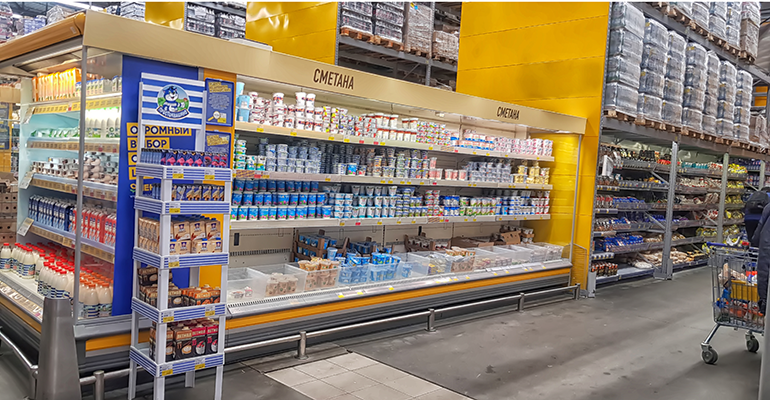News
Indonesia sees high inflation shift manufacturers' focus to value
22 Mar 2023
From smaller packs to promotions, food and drink brands in Indonesia are finding ways to appeal to value-focussed consumers as high inflation levels change grocery spending habits.
Despite inflationary pressures, various factors influence Indonesian consumers' food and drink spending, which occupies over 40% of Indonesia's fast-moving consumer goods (FMCG).
“Consumers are coping with inflation by rationalising spending and arranging their basket size,” says Venu Madhav, managing director of Indonesia at market research firm Kantar Worldpanel Division. “They prioritise staple categories over others, including pantry essentials and cooking aids within the food sector.”

Manufacturers are focusing on several leading trends that are particularly captive among Indonesian consumers. As a result, food and drink producers are launching new products to encourage spending.
Rethinking value-based formulations
Manufacturers are responding to high inflation levels in Indonesia by focusing on value buys. Adaptive strategies enable manufacturers to navigate the market’s inflationary pressure while still appealing to consumers and delivering relevant and sought-after products.
According to Madhav, food producers must understand that Indonesia is very diverse and behaves differently across regions. Therefore, manufacturers need to win in each region and fit the local preferences for food and drinks.
For other sectors, it’s crucial to offer affordability and availability across regions to have a strong presence, especially traditional trade. Outer Java can be the low-hanging fruit for manufacturers as it is experiencing faster FMCG growth, Madhav adds.
With inflationary pressure, it is vital to maintain affordability with the right price-pack strategy. “Promotion can be a way to succeed in the short term, but offering value for money with clear justification and a strong trigger to purchase can be a long-term objective,” says Madhav.
“Manufacturers should focus on winning the share of wallets over category prioritisation,” Madhav continues. Producers can extend their assortment with better affordability by offering smaller packs or leveraging the current flavour trend to stay relevant.
Manufacturers need to continue with new creations, launches and information to keep the brands exciting for consumers. They need to find the consumers' preferences and bring relevant new developments to the food and drink category.
Inflation expected to rise/remain/reduce in Indonesia
At the macro level, the inflation rate is now beyond 5%, and the government continues to push the number lower, says Madhav.
“Consumers have prioritised spending towards necessities and saving,” says Madhav. Subsequently, they have held back spending on other purchases like durable goods, fashion/clothing and travelling. If the macro condition improves, the outlook may be promising with higher spending beyond necessities.
 © AdobeStock/Evdoha
© AdobeStock/Evdoha
For FMCG sectors, 2023 is predicted to grow modestly. Kantar’s study results indicate that FMCG is expected to grow around 5.5 to 6% by the end of 2023, slower than in 2022 at 7%.
Omnichannel shopper behaviours will continue to rise with the higher relevancy of digital commerce and online channels. “Online shopping accelerated during the pandemic, so it becomes more important for manufacturers to have a seamless road to market and reach their shoppers,” Madhav says.
Instant food sector
Since the Covid-19 pandemic, the instant food sector has been more popular with shoppers and subsequently able to grow, particularly in areas such as frozen and canned food. The sector’s long-storage capabilities provided consumers with much-needed convenience when their mobility was limited.
Today, Indonesian consumers are open to exploring new things, including new product launches in food and drinks. In the take-home food sector, shoppers are more experimental in cooking, prompting faster growth than previously seen in cooking aids like oyster sauce, according to Kantar.
Some brands in the sector are trying to attract shoppers with flavour developments and by leveraging current trends, such as brown sugar, matcha, or other popular local taste palates in drinks, says Madhav.
